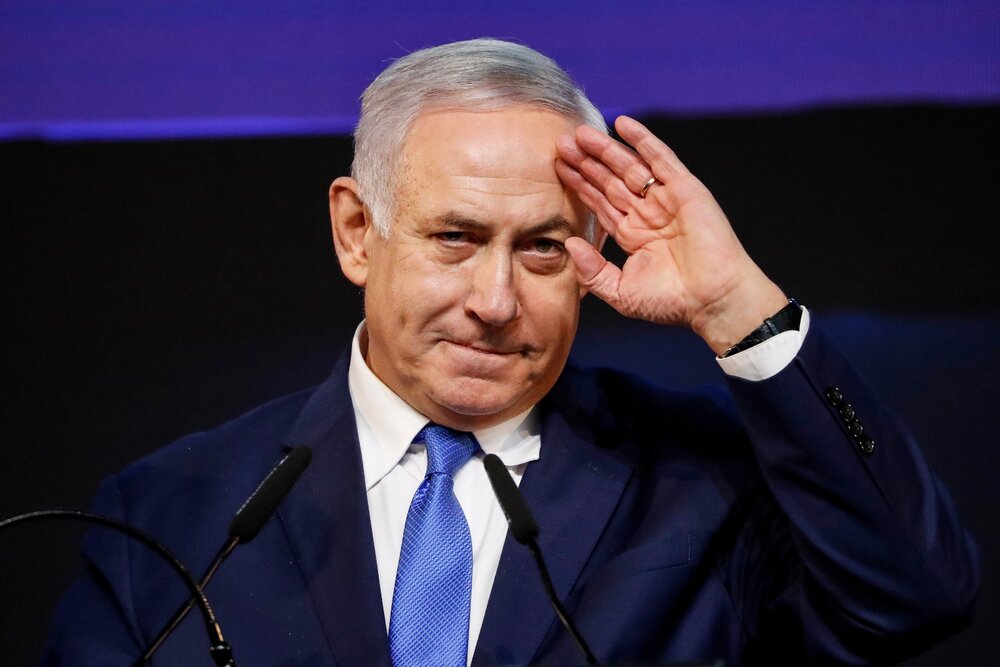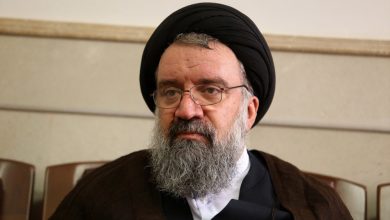
Netanyahu’s rise to power can be interpreted as a major threat to Iran. At the same time, it could be an unprecedented opportunity for the Islamic Republic. Tehran is making a major revision of its domestic and foreign policy.
According to the informants, a journalist named Ahmed Zaidabadi wrote in a note in this newspaper Motherland He wrote: Benjamin Netanyahu, the leader of the Israeli Likud party, achieved a complete and gentle victory in the Israeli parliamentary elections, and from now on he can be called the “King of Israel”, because, despite some limitations, the future of Israeli society is determined primarily by the will.
As of press time, the final results of the elections have not yet been announced, but according to expectations, the pro-Netanyahu right wing may win 62-65 seats in parliament. The result did not match opinion polls in the days leading up to the elections. Now Netanyahu’s hand is open to form a government of his choice. He promised to form an entirely right-wing government with the presence of the religious Zionist party and the two Orthodox parties, Shas and United Torah Judaism. The formation of such a government would raise the alarm for all secular and moderate Jews who favor peace with the Palestinians, and for that reason, Netanyahu may seek to invite parties outside the right-wing bloc to join the future government.
Parties outside the far-right bloc have previously pledged not to participate in a government led by Netanyahu, but their concerns about Israel’s future may prompt them to reconsider their decision. If parties outside the right-wing bloc do not agree to participate in the Netanyahu-led government at any cost, they will be held largely hostage by the extremist religious Zionist party.
The religious Zionist party, known for its racism among Jews, has an unbridled greed to devour the West Bank and will undoubtedly pressure Netanyahu for an unprecedented expansion of Jewish settlements in the heart of the Palestinian territories.
Netanyahu and his party support the expansion of Jewish settlements in the West Bank and East Jerusalem, but not so much as the religious Zionist party, which is indifferent to international sentiment.
Therefore, in order for Netanyahu to have the leaders of the religious Zionist party on his side, he must agree to their request to annex part of the West Bank and exercise Israeli sovereignty over these areas.
But such an action will lead to a strong reaction from the countries of the world and endanger their relations with Israel. For this reason, Netanyahu needs a comprehensive and serious crisis to divert the international community’s attention to another corner of the Middle East and thus take the pressure off himself.
All evidence indicates that they considered Iran for this purpose. Netanyahu, who has taken a completely uncompromising stance since the JCPOA was signed, did everything in his power to thwart him and explicitly and publicly demanded that this agreement be permanently buried. He considered that the only way to neutralize what he called “the threat of Iranian nuclear armament” is the unprecedented escalation of sanctions and the design of a “good military option” and stressed that no effort will be spared in this direction.
From this point of view, Netanyahu’s rise to power can be interpreted as the basis of a greater threat against Iran. At the same time, it could be an unprecedented opportunity for the Islamic Republic. Tehran is making a major revision of its domestic and foreign policy.
The truth is that the right wing that supports Netanyahu is fascist, nationalist and religious in nature. His stated policy was to expand Jewish settlements in the Palestinian territories, change the judicial system, especially the function of the Supreme Court, and increase the privileges of the traditional religious community, all of which were hostile to secularism, pacifism, and tolerance. . Jews inside and outside Israel equally hate the incoming Netanyahu government. This disgust will undoubtedly encourage the right to engage in civil confrontation, turn the streets of Israel into anti-Netanyahu demonstrations and put the right-wing government under severe pressure.
Similar pressures from the international community, especially Arab countries, Europe and the United States, will direct the Netanyahu government and bring it to the brink of crisis.
As has been said, Netanyahu seeks to create a crisis in Iran to neutralize these pressures, but if Iran, on the one hand, provides the ground for comprehensive national integration by implementing radical reforms, on the other hand, it will create balanced conditions. ..has an effective regime and opens the way for dialogue with the countries of the region and all the poles of the world on the basis of the country’s interests, and there is no doubt that Netanyahu will not fail to create a crisis in Iran and swallow up the West Bank. East Jerusalem, but he and his fascist allies will be the legitimate target of internal and external pressure and will be removed from the arena of Israeli politics once and for all.
end of message /









